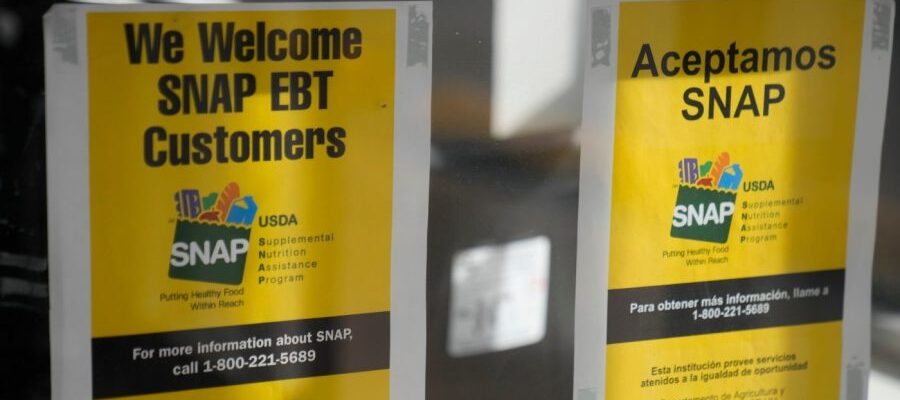Judge orders Trump administration to pay SNAP benefits from emergency funds

A federal judge on Friday blocked the Trump administration from cutting the Supplemental Nutrition Assistance Program (SNAP) starting this weekend due to the government shutdown, ordering officials to spend the emergency fund first.
The roughly $5.25 billion is not enough to cover the entire November benefit for the food aid program, which will cost the government more than $9 billion.
But U.S. District Judge John McConnell’s order bars the administration from completely drying up aid to more than 40 million Americans starting Saturday, rejecting arguments that the emergency fund can only be used for hurricanes or other uncontrollable disasters.
“SNAP benefits have never been terminated until now,” McConnell said at a hearing. “The United States has in fact acknowledged that emergency funds were being used appropriately during the 2019 shutdown.”
He ordered the US Department of Agriculture (USDA) to distribute the emergency funds “in a timely manner or as soon as possible” and provide an update to the court by Monday.
The looming SNAP skip has become the latest visible sign of the government shutdown, which is in its fifth week.
Even with Republicans mostly united, cracks appeared in the Senate GOP conference over whether to allow SNAP to be repealed this weekend. The expiration will affect millions of people in states represented by Republicans.
Although the judge’s ruling eases the pressure for now, it does not require USDA to retain benefits once the emergency fund is exhausted.
The administration’s refusal to spend the money came under two lawsuits, one filed by 25 Democratic-led states and the other filed by a coalition of cities and private organizations.
McConnell, an appointee of former President Obama who serves in Rhode Island, is overseeing the second lawsuit.
“The shutdown is an emergency for our clients. Starting tomorrow, these benefits will no longer be available to millions of Americans,” Michael Torsello, an attorney for the plaintiffs, told McConnell.
The judge issued his ruling from the bench moments after U.S. District Judge Indira Talwani, an Obama appointee who works in Boston and is overseeing the states’ case, issued a written order suggesting she would issue a similar ruling.
Talwani gave the government until Monday to explain how the emergency funds will be used.
The Trump administration has warned of practical concerns about paying partial interest for November, suggesting it would cause a “run for the banks” as states and recipients seek to obtain funds before the pot runs out.
“USDA cannot solve this problem by providing partial benefits,” the administration wrote in court documents.
“Such a partial payment has never been made – and for good reason,” she continued. “It would require each state to recalculate the benefits owed based on the decline in available funds. USDA estimates that such a calculation, which involves complex system changes and processes dictated by laws and regulations, would take weeks, if it could be done at all.”
The administration can fully fund the gap for November using a separate source, known as Section 32 funds, which comes from customs receipts. But the two justices agreed that the administration has discretion to do so.
“If there are no appropriations, there really is no program,” Justice Department attorney Tyler Baker said at Friday’s hearing. “The government cannot just add funding if there is no programme.”
Updated at 2:26 PM EST.
